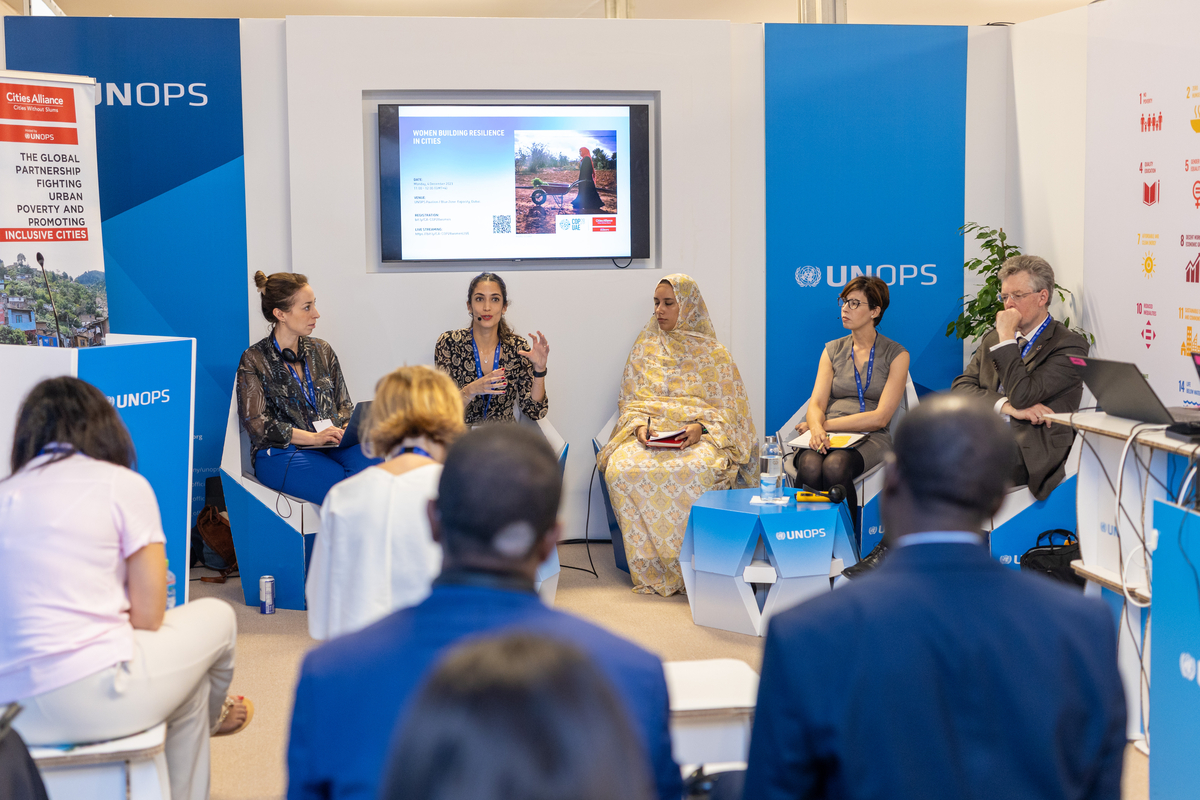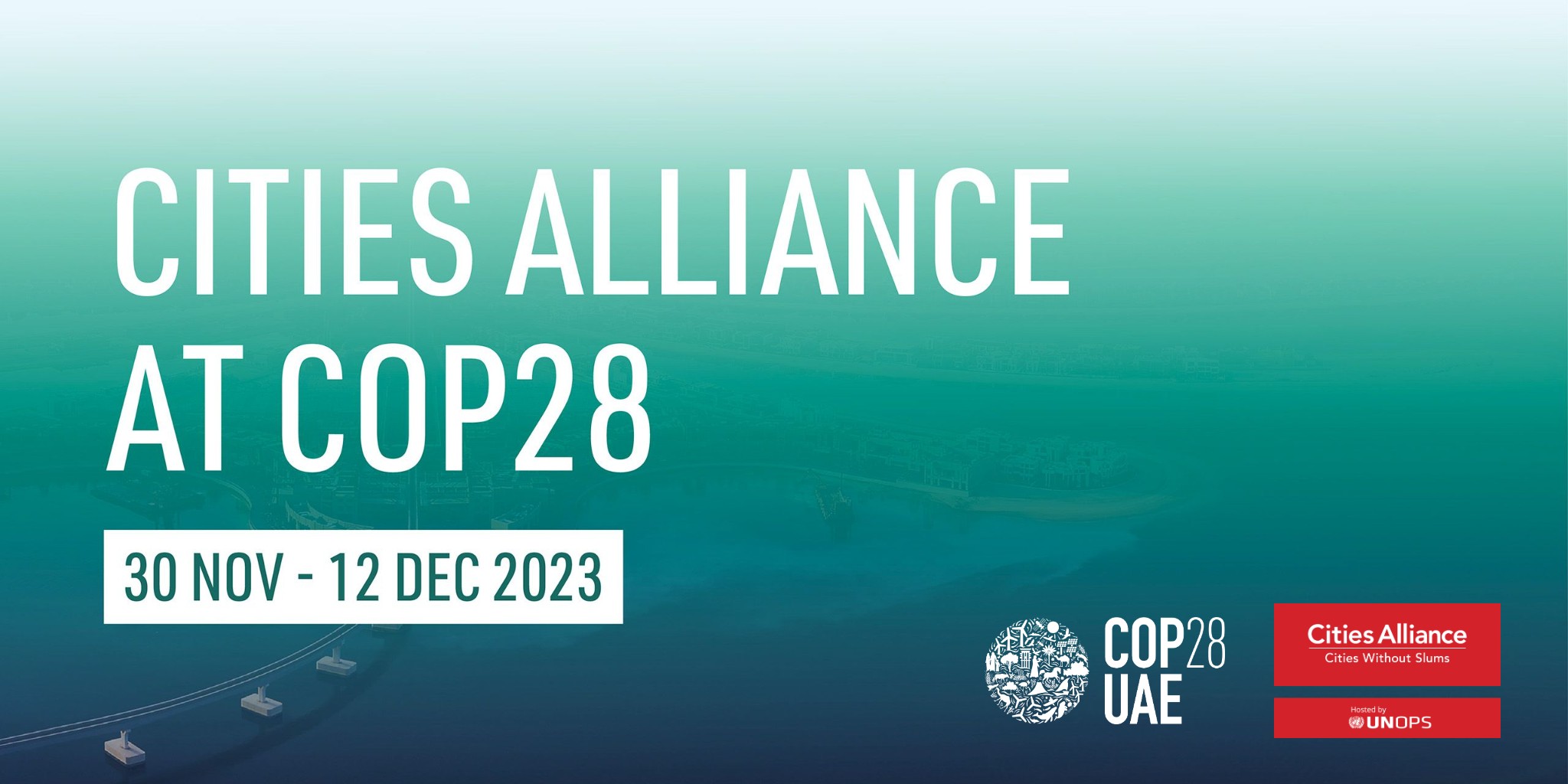At COP28, Cities Alliance hosted a panel focusing on women's participation in climate action in cities, with a focus on the MENA region. The panel explored experiences from Tunisia, Mauritania, and Morocco, shedding light on the interplay of climate and gender.
A climate-resilient city must be equal
We believe - actually we know - that a climate resilient city needs to be equal, with regards to resources and activities, regardless of gender identity.
Arne Janssen, Climate and Urban Resilience Lead at Cities Alliance
Janssen emphasized the necessity of supporting women in cities to tackle climate change, as 'they bear the brunt of climate effects, and their active participation is crucial for achieving a truly inclusive and sustainable city'. The Her4Climate tool is an example of Cities Alliance's support for local governments, gathering crucial data on gender perspectives to inform gender-sensitive, climate-resilient planning. The tool is currently being applied in Nepal to strengthen the role of women in bottom-up urban planning processes.
Gender-sensitive climate action
To enhance gender sensitivity in climate action, especially in the MENA region, which faces challenges in achieving SDG 5 on gender equality, there is a demand for innovative policies, tools, and approaches. In Tunisia, the government has developed a new gender strategy that integrates gender-sensitive climate action. Raida El Elj, from the Ministry of Environment explained the country's plan to strengthen capacity, improve communication, and enhance the representation of women, suggesting the introduction of a gender-responsive budgeting instrument.
Like many countries in the region, Mauritania is facing challenges like flooding, extreme heat, and drought. Nouakchott's capital region is collecting gender-disaggregated data. These data reveal the disproportionate impact on women, often managing households and dealing with climate disasters. Nouakchott's experiences highlight the need for education and better links between women and public authorities to ensure gender-sensitive climate action.
Women find themselves taking charge of the flood management, but they have no means to take this load on. This can cause a psychological impact
Fatimetou Boukhreiss, Climate Change Programme Coordinator, Nouakchott region.

Enabling a transformation in the MENA region
Jacob Waslander, MENA Envoy for Water and Food at the Dutch Ministry of Foreign Affairs, stressed the slow progress of SDG 5 in the region. Acknowledging that climate change affects vulnerable populations, he called for a transformation and urged a reality check on actions versus rhetoric.
We all know the effects of climate change will affect the most vulnerable populations first and hardest. This is all about a transformation.
Kawthar Monkachi, Head of the Capacity Building Pole at the Climate Change Competence Center (4C Center) in Morocco, brought a unique perspective. Highlighting the challenge of institutional fragmentation rather than a lack of data, Monkachi emphasized the need for funding and expertise to bridge the gap between gender and climate change data.
Monkachi's insights from the 4C Center showcased the tangible impact of facilitating communication between gender and climate change professionals. This catalytic approach becomes a beacon for other MENA countries aspiring towards just, equitable, and resilient cities.
It is not the lack of data that is a challenge, but the institutional fragmentation that prevents the data on climate and gender working together.

Moderator Hanne Knaepen, Head of Climate Action and Green Transitions at ECDPM, summarized the discussion by emphasizing the challenges in achieving gender equality and climate resilience in the MENA region. She called for a comprehensive overhaul towards gender-equal societies beyond the climate domain, emphasizing the importance of collaboration across MENA countries.
Watch the recording



